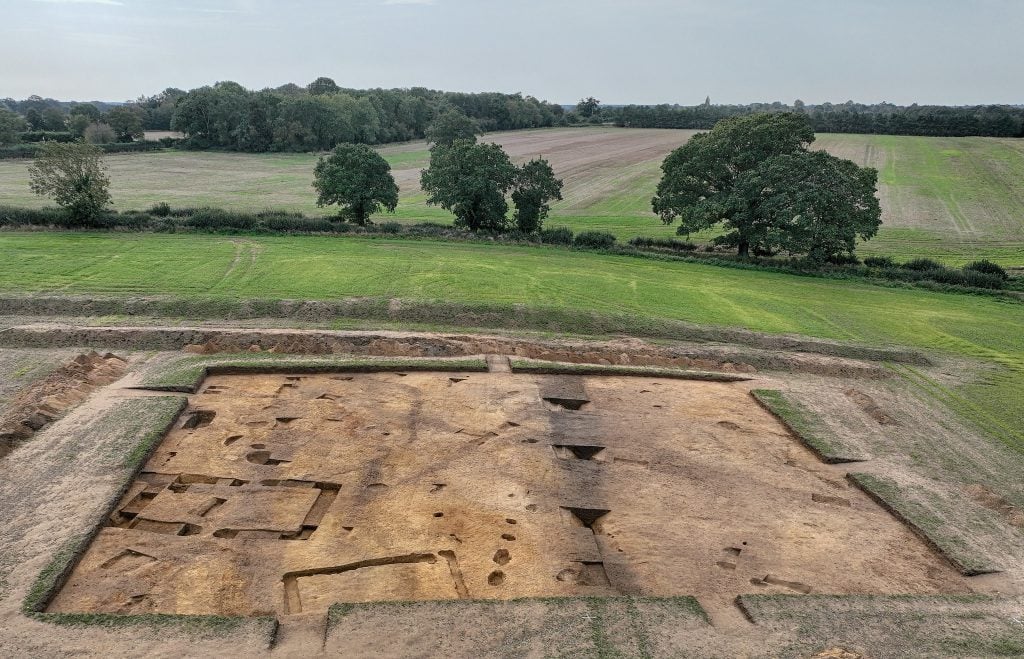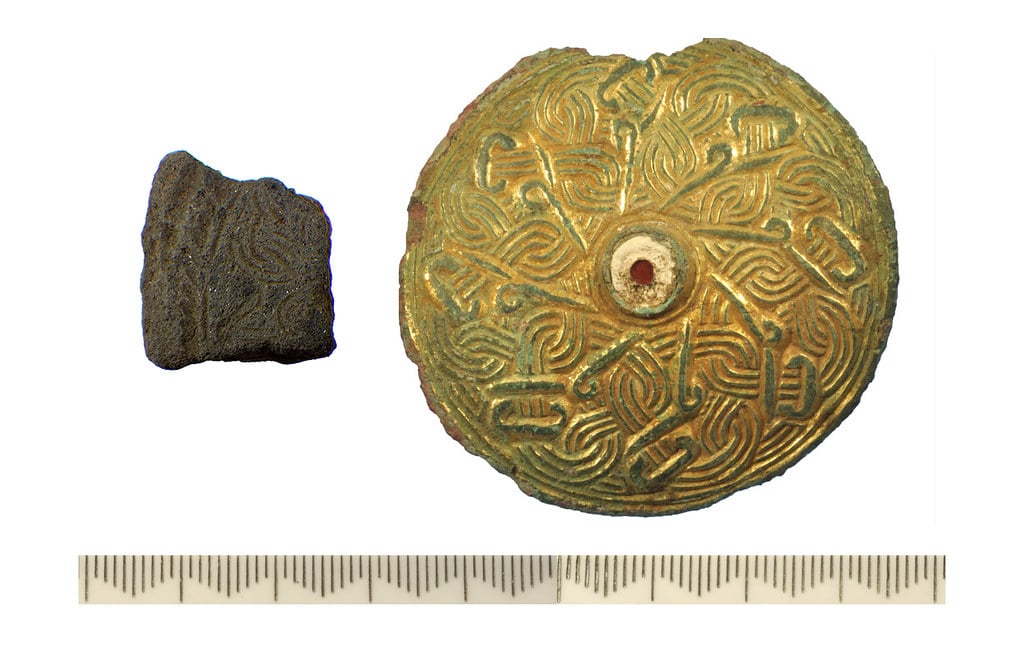Archaeology & History
A Lost 1,400-Year-Old ‘Cult House’ Was Rediscovered on an English Farm
The community archaeology project also unearthed evidence of 7th-century metalworking.

The community archaeology project also unearthed evidence of 7th-century metalworking.

by
Jo Lawson-Tancred

The remains of a 1,400-year-old pre-Christian temple or “cult house” have been discovered on a farm in Suffolk, England. It has been connected to a larger settlement that was once the home of East Anglian kings.
The newly excavated site is believed to have been a place of worship because of the distinctive nature of the building’s foundations, which suggest it was unusually high for its size of 33 by 16 feet. This design is consistent with similar buildings across England that are thought to have been temples or cult houses.
“The results of excavations at Rendlesham speak vividly of the power and wealth of the East Anglian kings, and the sophistication of the society they ruled,” said the dig’s principal academic advisor, Christopher Scull, in an announcement. He added that the possible temple “provides rare and remarkable evidence for the practice at a royal site of the pre-Christian beliefs that underpinned early English society.”
The region of Rendlesham is known to have once been a stronghold of Anglo-Saxon royalty thanks to the Ecclesiastical History of the English People, written in around 731 by the early Medieval scholar The Venerable Bede. In the same book, he notes that King Redwald (c. 599–624) maintained a temple containing altars to pre-Christian gods as well as an altar to Christ, though it is not known where this was.

Fragment of a mould used for fine metalworking (left) with a similar pattern to the horse harness mount (right), both found at Rendlesham. Photo: © Suffolk County Council.
Rendlesham is close to the 6th- and 7th-century Anglo-Saxon cemeteries known as Sutton Hoo, where an 88-foot-long burial ship believed to be King Redwald of East Anglia’s final resting place was found in 1939. The ship contained a wealth of fascinating artifacts, offering a rare glimpse into Anglo-Saxon life, which is otherwise not well-documented. Some of these precious pieces may have been made by local craftspeople who once inhabited a nearby settlement. Last year, the kings’ residence, a grand timber Royal Hall, was also found in the region.
The latest find of a possible temple has been accompanied by the uncovering of new evidence of 7th-century metalworking. This includes a fired clay mold for the production of decorative horse harnesses and waste products from the metalworking process.
The discovery brings to a close Suffolk County Council’s three-year community project Rendlesham Revealed, which was sponsored by a grant of £517,300 ($650,000) from the National Lottery Heritage Fund.
“This year’s findings round off three seasons of fieldwork which confirm the international significance of Rendlesham’s archaeology and its fundamental importance for our knowledge of early England,” said Councillor Melanie Vigo di Gallidoro, Suffolk County Council’s Deputy Cabinet Member for Protected Landscapes and Archaeology, in a press statement.
Provisional results from analysis of finds from the site are expected in 2024.
More Trending Stories:
A Shipwreck Off the Coast of Colombia May Hold $20 Billion Worth of Treasure
Hot! How a Backyard Photographer Captured Some of the Most Detailed Images of the Sun
Chinese Artist Chen Ke Celebrates the Women of Bauhaus in a Colorful, Mixed-Media Paris Debut
A Centuries-Spanning Exhibition Investigates the Age-Old Lure of Money
Meet the Woman Behind ‘Weird Medieval Guys,’ the Internet Hit Mining Odd Art From the Middle Ages
Conservators Find a ‘Monstrous Figure’ Hidden in an 18th-Century Joshua Reynolds Painting
A First-Class Dinner Menu Salvaged From the Titanic Makes Waves at Auction
The Louvre Seeks Donations to Stop an American Museum From Acquiring a French Masterpiece